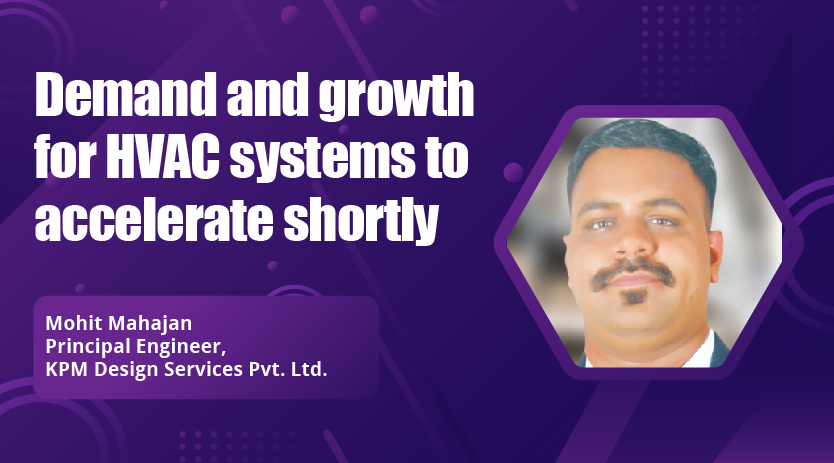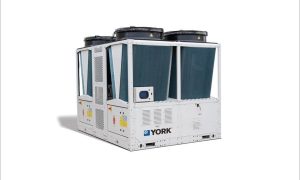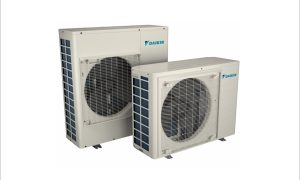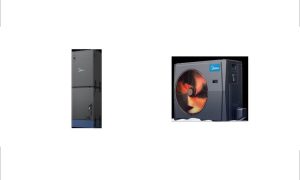ICAP and the focus on sustainable cooling effectively address the challenges posed by the increasing demand for cooling services and ensure a sustainable future for the country.
The HVAC industry is growth oriented for 2023
In India, the HVAC industry is expected to experience steady growth in 2023, driven by several factors, including the country’s expanding construction sector, urbanisation, and growing consumer awareness about the importance of energy-efficient systems. The Indian government’s focus on promoting sustainable building practices and initiatives to improve air quality in cities is also expected to drive demand for HVAC systems in the country.
Additionally, the increasing adoption of smart home technology and connected devices is expected to provide further opportunities for growth in the HVAC industry in India. The rise in disposable incomes and the growth of the middle class are also expected to contribute to the market’s growth.
However, the HVAC industry in India, like any other industry, is subject to fluctuations and changes. The outlook could be impacted by various economic, political, and market factors, such as inflation, currency fluctuations, and changes in government regulations. As such, keeping a close eye on the latest market trends and developments is important.
The Indian HVAC market size was $7,820.5 million in 2021, and it is projected to reach $29,282.7 million by 2030, expecting a good growing industry in 2023. The growth is ascribed to rampant infrastructure development, technological advancements, and rising tourism activities across the country.
Moreover, the rising disposable income and various government initiatives focusing on improving the energy efficiency of appliances are contributing to the market growth. Government campaigns, such as Atithi Devo Bhava and Digital India, resulting in a high inflow of tourists, thus leading to growth in hospitality and tourism-related businesses.
Furthermore, the Make in India initiative is resulting in global players setting up factories in India to cater to the local population, thereby propelling market growth.
Monitoring instruments to help improve the effectiveness of HVAC systems
The HVAC industry is undergoing a digital transformation, and there is a growing need for advancements in monitoring instruments to help improve the efficiency and effectiveness of HVAC systems. Some of the key advances in monitoring instruments needed to digitalise the HVAC sector include:
• Smart Thermostats: These devices allow for remote control of temperature settings and provide real time monitoring and data analysis of energy consumption.
• Building Automation Systems (BAS): BAS are networked systems allowing central control and monitoring of various building systems, including HVAC. These systems can help optimise energy usage and improve comfort levels in buildings.
• Indoor Air Quality Monitors: These monitors can detect and measure various indoor air quality parameters, including temperature, humidity, and levels of pollutants and allergens.
• Remote Monitoring and Diagnostic Tools: These tools allow for remote monitoring and diagnosis of HVAC systems, reducing the need for on-site visits and improving maintenance efficiency.
• Energy Management Systems: These systems can monitor energy consumption and help optimise energy usage in buildings, reducing waste and lowering costs.
These advancements in monitoring instruments can help improve the efficiency, performance, and sustainability of HVAC systems and are critical for the ongoing digital transformation of the HVAC industry.
Make-in-India to encourage HVAC equipment manufacturing.
The “Make in India” initiative, launched by the Indian government in 2014, aims to encourage foreign companies to invest in India and promote the country as a global manufacturing hub. The HVAC equipment manufacturing sector has the potential to benefit from this initiative significantly.
There are several prospects for Make-in-India to push for HVAC equipment manufacturing, including:
• Growing demand for HVAC systems in India: With increasing urbanisation and the growing demand for energy-efficient and sustainable building practices, the market for HVAC systems in India is expected to continue to grow in the ensuing years.
• Cost-effectiveness: India offers a cost-competitive manufacturing environment, with low labour costs and a large pool of skilled workers, making it an attractive destination for HVAC equipment manufacturing.
• Access to raw materials: India is rich in natural resources, including materials needed for HVAC equipment manufacturing, such as steel, aluminium, and copper.
• Favorable government policies: The Indian government has introduced several policies to support the growth of the manufacturing sector, including tax incentives and subsidies, which could make it more attractive for HVAC equipment manufacturers to set up operations in India.
• Growing export market: India has a large domestic market and is well-positioned to serve as a hub for exporting HVAC equipment to other countries.
Overall, the prospects for Make-in-India to push for HVAC equipment manufacturing are positive. The initiative can potentially drive the growth of the HVAC industry in India and establish the country as a major player in the global HVAC equipment manufacturing market.
ICAP aims at a sustainable cooling solution
The India Cooling Action Plan (ICAP) is a government initiative to promote sustainable cooling solutions in India and address the country’s growing demand for cooling services. The plan recognises the impact of inefficient cooling systems on energy consumption and greenhouse gas emissions and seeks to promote energy-efficient and environmentally friendly cooling technologies.
The focus on sustainable cooling is essential because cooling systems use is increasing globally, particularly in developing countries like India. This trend is expected to continue in the coming years. This increased demand for cooling services is putting a strain on energy resources and contributing to the increase in greenhouse gas emissions.
Sustainable cooling refers to developing and implementing cooling systems and technologies that are energy-efficient, environmentally friendly, and economically viable. This includes using renewable energy sources, such as solar and wind power, and promoting energy-efficient appliances and systems, such as air-conditioners and refrigerators.
In conclusion, the India Cooling Action Plan and the focus on sustainable cooling are critical steps in addressing the challenges posed by the increasing demand for cooling services and ensuring a sustainable future for the country. The plan can potentially drive the growth of the cooling industry in India and promote the use of environmentally friendly and energy-efficient cooling technologies. The Union Budget for 2023 also emphasises building on India’s commitment to lead the global action against climate change, preserve biodiversity and support sustainable development.
Features, products and HVAC technologies expected for showcasing
ACREX is a leading trade fair for the HVAC industry in India and is expected to showcase the latest advancements and innovations in the field. Based on the trends in the HVAC industry, some of the new features, products, and technologies that might be showcased at ACREX 2023 include the following:
• Smart HVAC systems: As the HVAC industry becomes increasingly digitised, smart HVAC systems that can be controlled and monitored remotely are expected to be a major focus.
• Energy-efficient technologies: With a growing focus on sustainability and reducing energy waste, new energy-efficient technologies for heating, cooling, and ventilation are expected to be a significant feature at ACREX 2023.
• Indoor air quality solutions: Indoor air quality is becoming an increasingly important concern. New solutions and technologies for improving indoor air quality are expected to be displayed at ACREX 2023.
• Building automation systems: As building automation becomes increasingly sophisticated, new building automation systems that can integrate and control various building systems, including HVAC, are expected to be a major focus at the event.
• Renewable energy solutions: Renewable energy solutions, such as solar-powered HVAC systems, are expected to be a key area of focus at ACREX 2023 as the industry moves towards more sustainable and environmentally friendly solutions.
These are just a few areas where new products and technologies might be showcased at ACREX 2023. The event will likely highlight the latest advancements in the HVAC industry and provide a glimpse into the future of this sector.
Cookie Consent
We use cookies to personalize your experience. By continuing to visit this website you agree to our Terms & Conditions, Privacy Policy and Cookie Policy.














